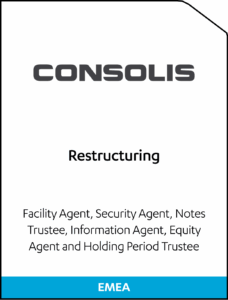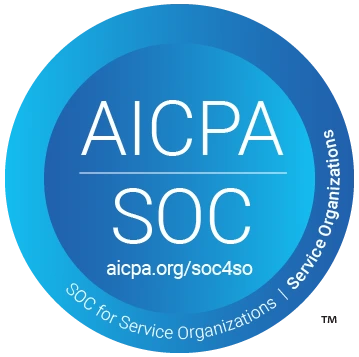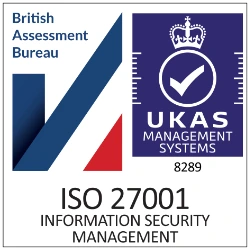
Strategic enforcement of share pledges in cross-border restructuring: A GLAS perspective

Strategic enforcement of share pledges in cross-border restructuring: A GLAS perspective
By James Rea-Palmer, GLAS
Economies around the globe are continuing to experience turbulence with markets being particularly discordant following impactful world events such as the Covid-19 pandemic and the war in Ukraine. This has had a knock on effect for borrowers as they seek to navigate a perfect storm of challenging economic headwinds, including high costs of capital, disrupted supply chains and reduced consumer spending, combining to create an environment of ever squeezed margins.
Wherever there is discord at a macro level, distress is prevalent at the micro level across a myriad of industries/sectors. This often leads to lenders reviewing their portfolios to assess whether value is being maximised in respect of investments within their loan portfolios.
Debtors facing financial difficulty across multiple jurisdictions can turn to a plethora of court managed processes aimed at assisting distressed entities including schemes of arrangements and Part 26A restructuring plans in England and Wales, the StaRug in Germany and the WHOA in the Netherlands. These processes are often expensive and can be incredibly labour-intensive endeavours broadly aimed at refinancing or recapitalising borrowers’ balance sheets or effecting large scale operational restructurings.
Lenders faced with a defaulting or soon to default borrower often face a quandary of whether to engage proactively and positively with the borrower to recalibrate the financial position or set in motion the nuclear option of enforcing against the borrower’s collateral package.
Loan-to-own strategies are often contemplated as a potential way to unlock value relatively quickly and without the complications of a full blown restructuring, particularly if a creditor’s faith in existing management has all but disappeared.
Share pledge enforcements are the tip of the spear for loan-to-own strategies and, set against the uncertainty of the global economic environment, have become increasingly popular in the UK and beyond, with distressed investors choosing to either immediately realise value through a sale or via take and holds where the creditor shifts from holding debt to equity positions to preserve value in the assets secured in their favour.
What is a share pledge?
In most secured financings, share pledges are often granted as part of the overall collateral package that is offered up by a borrower group to its lenders. This typically includes a share pledge over a holding company at the top of a group structure, although share pledges can also be granted over high value operating companies lower down in the structure.
The benefit of a share pledge over a holding company near to or at the top of a borrower group structure is that a secured creditor can take ownership of or sell the entire group via a single point of enforcement.
Whilst the precise definition and nature of a share pledge varies across jurisdictions, the commonality that exists across most jurisdictions is that it is a type of collateral security that typically involves a transfer of the right to ownership of stocks/shares from shareholders of a borrower entity to its lender(s) for a defined period until all secured obligations under a financing are repaid in full.
Under English law a share pledge involves a registered owner of the pledged shares (the Pledgor) delivering possession of the pledged shares to its creditors by way of security.
Following an event of default a secured creditor has the right (but not the obligation) to enforce the share pledge, which can include taking ownership, exercising voting rights in relation to the shares as though it were a shareholder, or receiving dividends in relation to those shares. The secured creditor can also enforce the share pledge by selling the shares to a third party for value without taking ownership.
At the time the pledge is entered into the borrower will typically deliver to the secured creditor, the following:
- Original share certificate(s)
- Undated but signed blank share transfer instrument (the form of this can vary across jurisdictions)
- An irrevocable proxy and power of attorney (typically contained within the share pledge itself)
- Undated but signed resignation letters for all directors and company secretary (this facilitates a smooth management change post-enforcement, if necessary)
Share pledge enforcements
A default by a borrower can trigger the right of a secured creditor to take enforcement action including the enforcement of any share pledge that it has the benefit of. This can involve a variety of different scenarios depending on the context of any given distressed situation and the jurisdiction in which the collateral is situated.
In England and Wales, a popular route is for the secured creditor to enforce by appointing a fixed charge receiver over the pledged shares to effect a sale. Alternatively, the secured creditor can facilitate the sale themselves or could take ownership of the share themselves. Taking ownership of the shares by the secured creditor itself can often come with tax and operational risk, so sales to third parties are more often than not pursued.
England and Wales, Luxembourg, and the Netherlands are popular jurisdictions to execute share pledge enforcements given that these jurisdictions are creditor sympathetic and enforcements in these jurisdictions are tried and tested and are fairly straightforward. Luxembourg and the Netherlands are particularly prevalent given the popularity of Luxembourg and Dutch holding structures in the group structures of many global corporates.
Share pledges in these jurisdictions are often considered as the best places to enforce as the law provides for robust mechanisms to assess fair value, ensuring maximum value protection for creditors and fairness for all stakeholders. However, the jurisdiction of the enforcement will depend ultimately on the location of the security and the law governing the share pledge itself.
In most large bilateral and syndicated loans there will be a facility agent that operates to administer the financing throughout its term (for example, calculating, collecting, and distributing interest payments) and to function as a conduit between the borrower and its lenders. There will also be a security agent that operates to hold (and if necessary, enforce) security on behalf of lenders.
GLAS acts as both facility agent and security agent on a myriad of financings. In any given financing where a facility agent and security agent exist and the relevant instructing group of lenders wish to enforce the security, lenders typically instruct the facility agent and security agent to realise security including enforcing a share pledge.
It is important to note that the agents will likely have the benefit of contractual indemnities that protect them from liability for taking enforcement actions on behalf of the lenders and allow them to seek appropriate indemnification before taking any enforcement action. Accordingly, any lenders contemplating enforcement action need to factor in this dynamic before instructing the agents to enforce.
Set out below is a broad summary of share pledge enforcements in England and Wales, Luxembourg, and the Netherlands. Share pledge enforcements usually take place pursuant to intercreditor agreements that contain distressed disposal mechanics (allowing a security agent to release the security and liabilities of the group being sold) which often dictate a requirement to obtain a valuation and in some cases a fairness opinion prior to any such releases.
England
- Common law requirement to obtain a fair market value for the pledged shares as well as the other overriding obligations for a chargee exercising a power of sale, i.e., amongst others, to act in good faith, act with reasonable care and skill, and take reasonable steps to obtain a proper price.
- A valuation is often required in order to discharge the common law requirements for fair market value and contractual obligations in respect of fairness that usually exist in an intercreditor agreement.
Luxembourg
- A share pledge enforcement can take place (following an event of default) via:
(i) private arm’s length sale;
(ii) appropriation (independent auditor valued);
(iii) public auction; or
(iv) court attribution. - No valuation is required in respect of private arm’s length sale although it is a good way of demonstrating that the shares have been sold on an arm’s length basis.
- Appropriations are a very popular mechanism of enforcement as they do not require any court involvement, and the shares can be appropriated either to a third party or the secured creditor themselves. The valuation can also be conducted after the appropriation has taken place, so it is a swift method of enforcement.
- A Luxembourg independent auditor (e.g. a réviseur d’entreprises agréé) is often appointed to undertake a valuation to reduce any risk of challenge.
The Netherlands
- Share pledge enforcement can take place (following a default of payment obligations) via either:
(i) a public auction (rarely used);
(ii) a private sale with pledgors’ consent; or
(iii) a private sale with court approval. - A valuation is often obtained for both a private sale with pledgors’ consent and a private sale with court approval.
- Credit bidding is allowed as part of the enforcement process notwithstanding there is no statutory basis for doing so.
Important considerations prior to commencing enforcement
Due Diligence
Prior to commencing any enforcement, the secured creditor will want to ensure that they have undertaken a detailed review of the financing documents including the relevant security to ensure that there is a full understanding of the critical elements of the enforcement.
If there are multiple secured creditors and layers of security within a shared collateral package, then it is vital to check the relevant documents governing the relationship between junior and senior creditors vis-à-vis shared collateral such as in an intercreditor or subordination agreement.
Pre-emption steps or standstill periods may need to be observed before enforcing and this may impact timing. In time-sensitive situations, a standstill period could be value detrimental, so must be considered carefully at an early stage as part of the overall enforcement strategy.
Reputation management
A secured creditor is also likely to consider any reputational issues prior to enforcing, albeit certain types of creditors (particularly specialist distressed debt funds) are generally less concerned about the negative implications of pursuing a share pledge enforcement strategy.
Value
In the UK and most other common law jurisdictions, there exists a requirement to obtain a fair and reasonable value when selling a secured asset through an enforcement. This is often coupled with specific contractual obligations on a secured creditor to do so in the financing documents.
Determining the fair value of the pledged shares is an important protection for the enforcing creditor from both a legal and perception basis. An erroneous valuation or one with perceived bias can set in motion convoluted and expensive legal proceedings, so obtaining a robust valuation that the enforcing creditor can stand behind is key.
Lots of factors, in addition to the inherent value of the underlying shares, feed into a valuation including externalities such as the overall borrower group financings and the position of the group in the market it operates. Accordingly, when a secured creditor decides to or is obligated to obtain a valuation, an important consideration for the enforcing creditor is instructing an independent valuer who can provide a rigorous, expert valuation that is transparent and would, if necessary, ultimately stand up to challenge and/or judicial analysis.
Other potential complications can include the level of co-operation the management of a distressed borrower is willing to or can give to an independent valuer.
Recent GLAS restructuring experience includes:
Sino-Ocean (2025)
GLAS acted in multiple roles throughout the $6bn offshore restructuring of Chinese real estate developer Sino-Ocean. This complex cross-border deal, one of the largest debt exchanges ever seen in the market, was delivered by a coordinated GLAS team spanning Europe and Asia.

Consolis (2025)
The Consolis Group completed a comprehensive restructuring and recapitalisation in which GLAS played a central role across multiple aspects of the transaction. GLAS acted as Facility Agent, Security Agent, Note Trustee, Information Agent, Equity Agent, and Holding Period Trustee, supporting the execution of a complex debt-for-equity swap and ensuring a smooth transition for stakeholders throughout the process.

Cineworld (2025)
GLAS acted as Lock-Up Agent and Information Agent, supporting the cinema group’s emergence from administration and facilitating a complex debt-for-equity swap that helped stabilise one of the world’s largest cinema chains.
Summary
Share pledge enforcements remain very popular for secured creditors due to the certainty of outcome they provide, and their relative simplicity compared to other distressed workout strategies. They must be carefully considered prior to enforcement from both a legal, commercial, and reputational perspective and should be executed with precision to ensure any risk of challenge is mitigated. There are variances across jurisdictions in respect of the precise process to enforce a share pledge, but a common theme is that value is a crucial factor in ensuring fairness to all stakeholders when executing the enforcement.
















